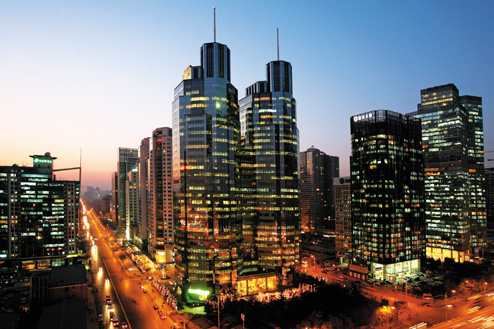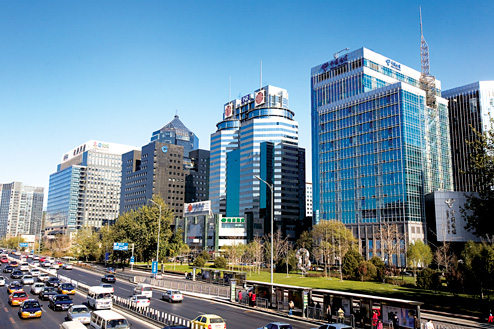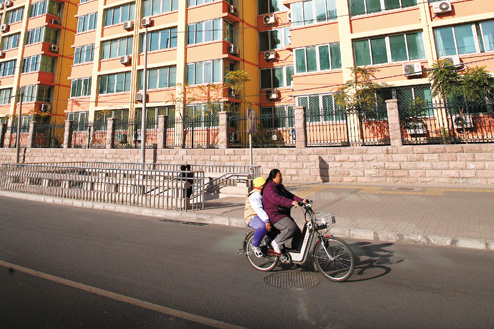Working In Beijing
The attraction of working in such an exciting economy is proving irresistible for many. As more foreign companies pile into China, opportunities to work in Beijing are opening up, while the Chinese people’s insatiable desire to learn English means the most traditional expat market – language teaching – is thriving. While Beijing may not be as glitzy as Shanghai, it has the attraction of being the country’s capital and an essential stop for those who want to get ahead.
Working in China can be a huge positive on a CV. It demonstrates a willingness to work in a new culture and experience a different market. As China’s importance in the world economy increases, time spent there is a sound investment for the future. But, as with all expat terms abroad, it’s wise to keep an eye on opportunities elsewhere or back home. You might find employers in your own country aren’t always as excited by your time away as you are.
New business opportunities are opening up all the time. Despite its reputation as a government town, the entrepreneurial spirit sweeping China is alive in Beijing. Local people are hard-working and keen to get ahead, which makes for a good work atmosphere. However, decision making is a slow process and patience is a necessary virtue, but it’s also important to be quick-thinking and flexible to keep up with the changing market. Meanwhile, Beijing’s more general problems, like the pollution, cold winters and stifling summers, are off-putting to some.
Connections in China are all-important, so take lots of business cards wherever you go. The word guanxi describes how Chinese people build networks through friends, classmates, colleagues and family, to be used in their business life. It can be difficult for a foreigner to match the web of contacts Chinese people are able to build, but you should try to nurture the relationships you do form with locals.
Many foreigners get by without speaking Chinese, but the more you can communicate, the better. Speaking Chinese certainly gives you more options when looking for work, though in industries such as finance and professional services, it’s not always so important.
Most people coming to live in China find the cost of living much lower than at home, particularly if they’re from western Europe or the US. Decent accommodation, meals out, taxis, and even having a cleaner for your apartment, are all reasonably priced. However, the cost of living is rising and Mercer Consulting rated Beijing the world’s 20th most expensive city in its 2007 survey. Buying clothes and electronics in shopping malls is not necessarily cheaper than in the west, though there are still plenty of markets where you can try your bargaining skills.
Salaries vary greatly between industries and companies. There’s also a big difference in packages if you are moved here by an employer, rather than just pitching up to look for work. Fewer companies now see Beijing as a hardship posting, and more are looking to hire locally, as the availability of well-qualified, English-speaking Chinese people increases. This means the days of extravagant expat packages are dwindling. Still, at the top end, employees can push for perks such as help with housing and education costs. If you’re moving abroad with a company, it’s worth pushing for flights home once a year and help with moving expenses to be included in your contract. Be aware that employment benefits are generally different from norms in the west. While around 80% of domestic and international companies in China will offer healthcare and related insurance, only around a fifth will provide supplementary pension plans. Moreover, only around a quarter offer flexible working hours.
Working in China can be a huge positive on a CV. It demonstrates a willingness to work in a new culture and experience a different market. As China’s importance in the world economy increases, time spent there is a sound investment for the future. But, as with all expat terms abroad, it’s wise to keep an eye on opportunities elsewhere or back home. You might find employers in your own country aren’t always as excited by your time away as you are.
New business opportunities are opening up all the time. Despite its reputation as a government town, the entrepreneurial spirit sweeping China is alive in Beijing. Local people are hard-working and keen to get ahead, which makes for a good work atmosphere. However, decision making is a slow process and patience is a necessary virtue, but it’s also important to be quick-thinking and flexible to keep up with the changing market. Meanwhile, Beijing’s more general problems, like the pollution, cold winters and stifling summers, are off-putting to some.
Connections in China are all-important, so take lots of business cards wherever you go. The word guanxi describes how Chinese people build networks through friends, classmates, colleagues and family, to be used in their business life. It can be difficult for a foreigner to match the web of contacts Chinese people are able to build, but you should try to nurture the relationships you do form with locals.
Many foreigners get by without speaking Chinese, but the more you can communicate, the better. Speaking Chinese certainly gives you more options when looking for work, though in industries such as finance and professional services, it’s not always so important.
Most people coming to live in China find the cost of living much lower than at home, particularly if they’re from western Europe or the US. Decent accommodation, meals out, taxis, and even having a cleaner for your apartment, are all reasonably priced. However, the cost of living is rising and Mercer Consulting rated Beijing the world’s 20th most expensive city in its 2007 survey. Buying clothes and electronics in shopping malls is not necessarily cheaper than in the west, though there are still plenty of markets where you can try your bargaining skills.
Salaries vary greatly between industries and companies. There’s also a big difference in packages if you are moved here by an employer, rather than just pitching up to look for work. Fewer companies now see Beijing as a hardship posting, and more are looking to hire locally, as the availability of well-qualified, English-speaking Chinese people increases. This means the days of extravagant expat packages are dwindling. Still, at the top end, employees can push for perks such as help with housing and education costs. If you’re moving abroad with a company, it’s worth pushing for flights home once a year and help with moving expenses to be included in your contract. Be aware that employment benefits are generally different from norms in the west. While around 80% of domestic and international companies in China will offer healthcare and related insurance, only around a fifth will provide supplementary pension plans. Moreover, only around a quarter offer flexible working hours.













